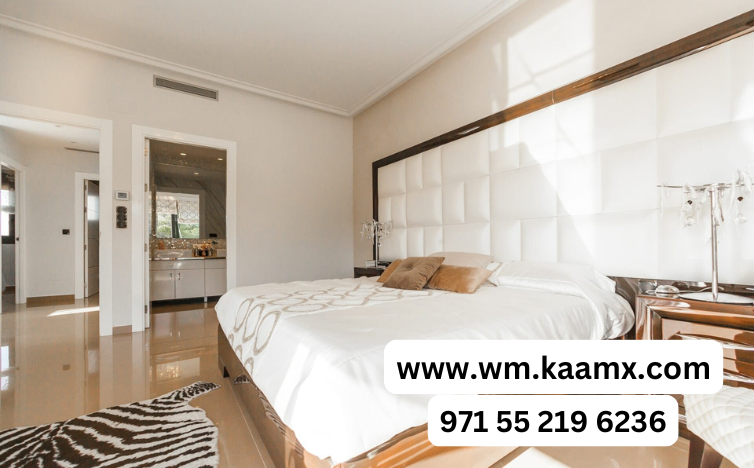Soundproofing a hotel room is crucial for ensuring a peaceful and comfortable stay for guests. Whether you’re building a new hotel or renovating an existing one, soundproofing should be a top priority. This guide provides practical solutions to help you effectively soundproof your hotel rooms.
1. Assess the Noise Sources
Before implementing any soundproofing measures, it’s essential to identify the primary sources of noise. Common noise issues in hotel rooms include external traffic, noise from adjacent rooms, and mechanical sounds from HVAC systems. Understanding the specific noise problems will help you choose the most effective soundproofing methods.
 2. Soundproof the Walls
2. Soundproof the Walls
The walls are often the biggest culprits in transmitting noise between rooms. To reduce noise transfer, consider using the following methods:
- Insulation: Adding dense insulation material inside the walls can significantly reduce sound transmission.
- Acoustic Panels: Installing fabric-wrapped acoustic panels on the walls can absorb sound and improve room acoustics.
- Mass Loaded Vinyl (MLV): MLV is a heavy, flexible material that can be added to walls to block sound.
3. Upgrade Windows and Doors
Windows and doors are common entry points for noise. To minimize external noise, consider the following upgrades:
- Double-Glazed Windows: These windows have two layers of glass with a space in between, which acts as a barrier to sound.
- Acoustic Laminated Glass: This type of glass is specially designed to reduce noise penetration.
- Solid-Core Doors: Replace hollow-core doors with solid-core doors, which are more effective at blocking sound.
See Also: Acoustic Windows vs Double-Glazed: Which is Better?
4. Address the Floor and Ceiling
Noise from above or below can be disruptive for hotel guests. To address this, you can:
- Install Carpet or Acoustic Underlay: Carpeting the floors or using an acoustic underlay can help dampen noise.
- Add a Drop Ceiling with Insulation: A drop ceiling with sound-absorbing insulation can reduce noise from upper floors.
- Use Floor Underlayment: This material can be installed under flooring to reduce sound transmission between floors.
5. Improve HVAC Soundproofing
Mechanical noise from HVAC systems can be a significant issue in hotel rooms. To reduce this noise:
- Install Soundproof Ducts: Using soundproof ducting material can reduce noise from HVAC systems.
- Use Vibration Isolators: These devices can be added to HVAC units to minimize vibrations and noise.
- Maintain HVAC Systems Regularly: Regular maintenance can prevent noisy HVAC operations and ensure the system runs smoothly.
6. Consider Acoustic Treatments
Acoustic treatments can further enhance the soundproofing of a hotel room:
- Soundproof Curtains: Heavy, insulated curtains can help block external noise from windows.
- Acoustic Baffles: These hanging panels can be installed in ceilings to absorb sound and improve room acoustics.
- Soft Furnishings: Adding upholstered furniture, rugs, and cushions can also help absorb sound within the room.
Contact Muhammad Shaheen Carpentry at 971 55 219 6236, and discover the transformative science of soundproofing for your space.
By following these guidelines, you can create a more peaceful and enjoyable experience for your hotel guests, leading to higher satisfaction and repeat visits. Soundproofing is an investment in the quality and reputation of your hotel, and it pays off in happier, more comfortable guests.

